Intel Core i9-13900K and i5-13600K Review: Raptor Lake Brings More Bite
by Gavin Bonshor on October 20, 2022 9:00 AM ESTCPU Benchmark Performance: Rendering And Encoding
Rendering tests, compared to others, are often a little more simple to digest and automate. All the tests put out some sort of score or time, usually in an obtainable way that makes it fairly easy to extract. These tests are some of the most strenuous in our list, due to the highly threaded nature of rendering and ray-tracing, and can draw a lot of power.
If a system is not properly configured to deal with the thermal requirements of the processor, the rendering benchmarks are where it would show most easily as the frequency drops over a sustained period of time. Most benchmarks in this case are re-run several times, and the key to this is having an appropriate idle/wait time between benchmarks to allow for temperatures to normalize from the last test.
One of the interesting elements of modern processors is encoding performance. This covers two main areas: encryption/decryption for secure data transfer, and video transcoding from one video format to another.
In the encrypt/decrypt scenario, how data is transferred and by what mechanism is pertinent to on-the-fly encryption of sensitive data - a process by which more modern devices are leaning to for software security.
We are using DDR5 memory on the Core i9-13900K, the Core i5-13600K, the Ryzen 9 7950X, and Ryzen 5 7600X, as well as Intel's 12th Gen (Alder Lake) processors at the following settings:
- DDR5-5600B CL46 - Intel 13th Gen
- DDR5-5200 CL44 - Ryzen 7000
- DDR5-4800 (B) CL40 - Intel 12th Gen
All other CPUs such as Ryzen 5000 and 3000 were tested at the relevant JEDEC settings as per the processor's individual memory support with DDR4.
Rendering
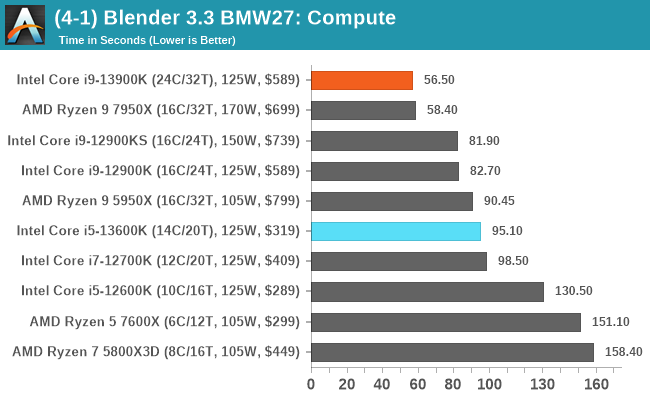
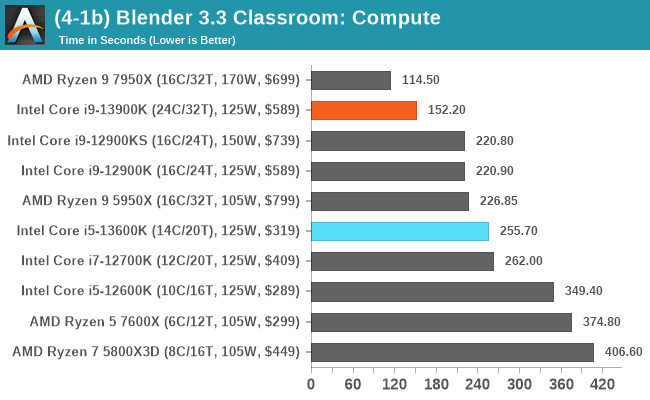
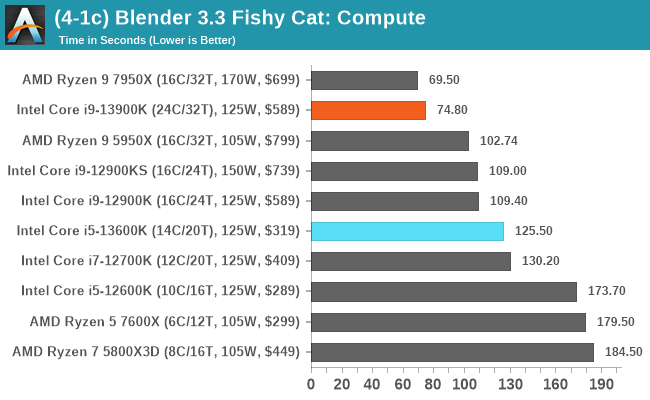
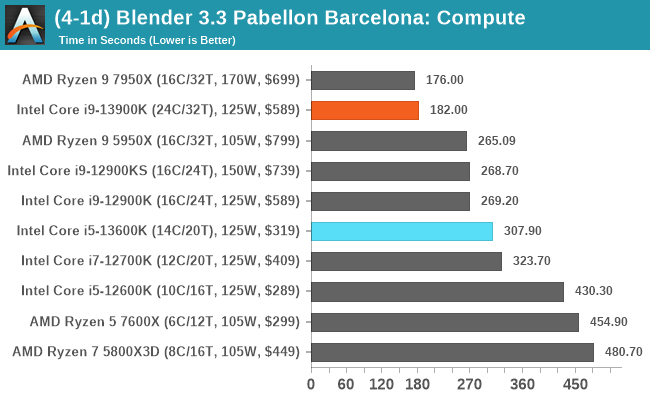
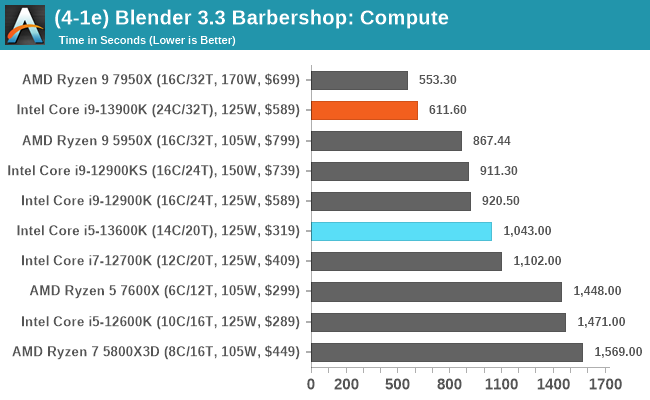
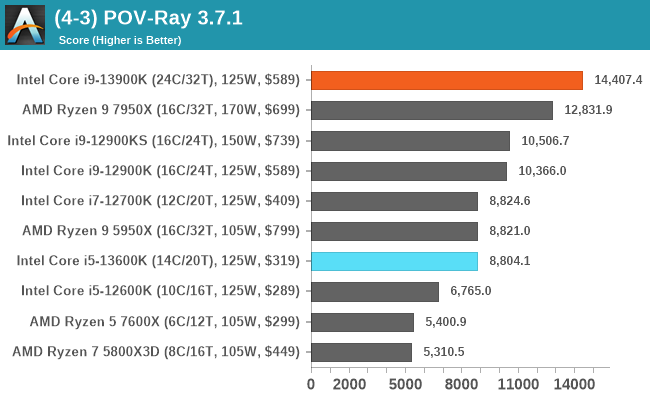
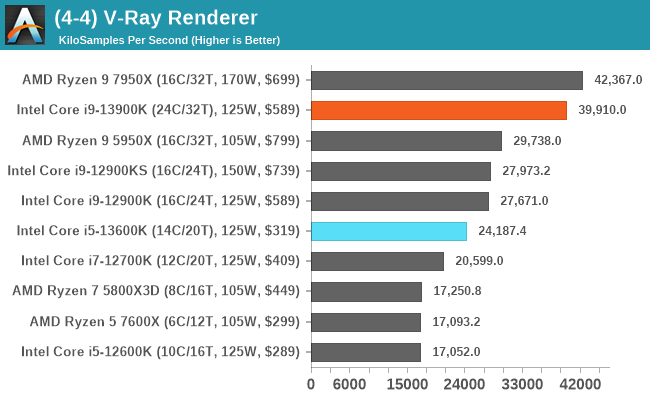
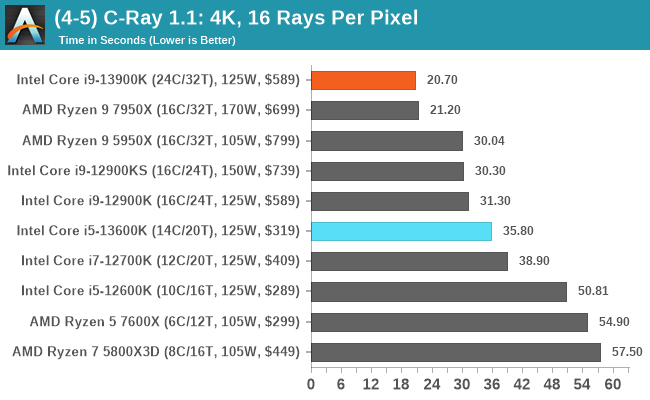
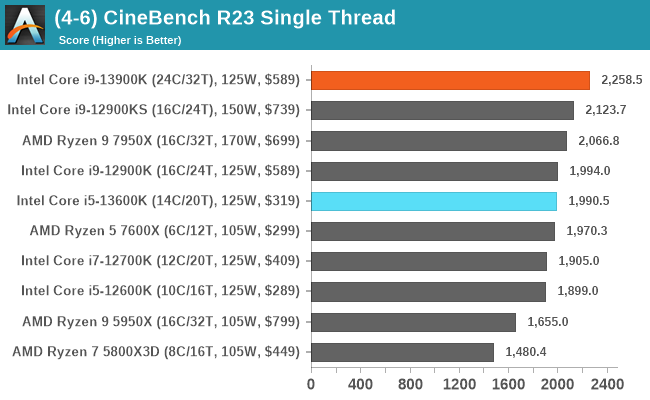
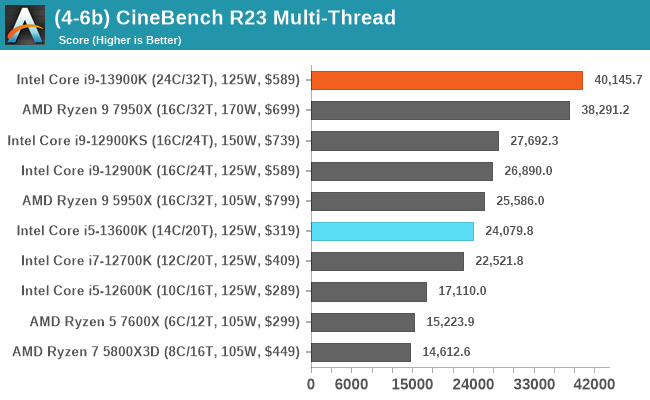
Identifying what core comes where in our rendering tests, both the Core i9-13900K and Ryzen 9 7950X sit comfortably at the top of the tree. Depending on the test, it’s a consistent battle for rendering supremacy. Where things aren’t as close are in our POV-Ray and V-Ray tests, where the Core i9-13900K has a distinct advantage; likely down to having eight more logical cores than the 7950X.
Encoding
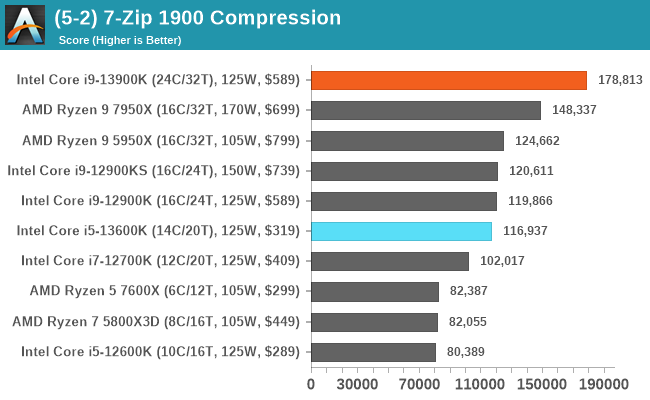
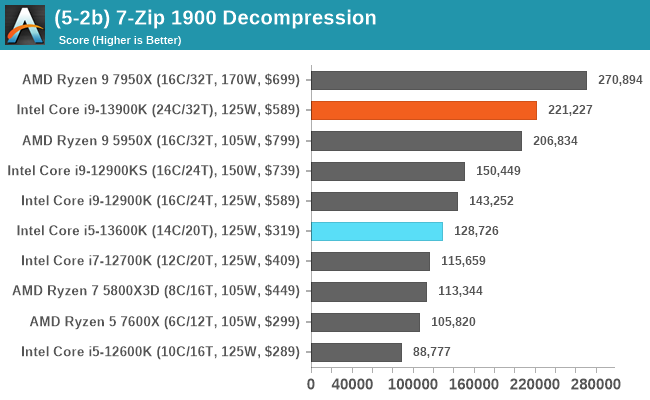
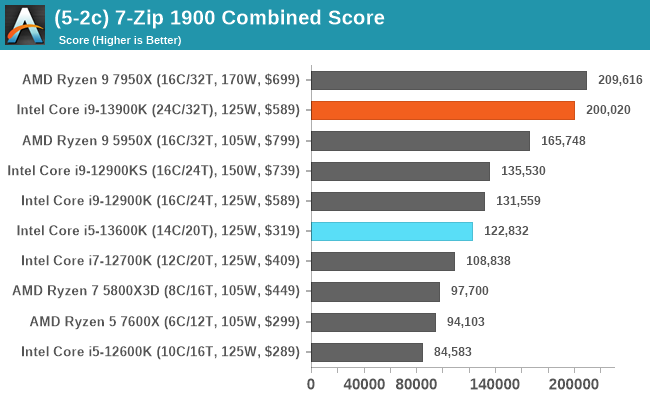
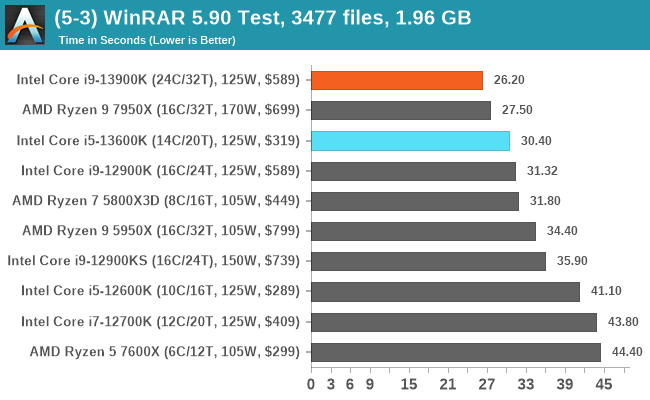
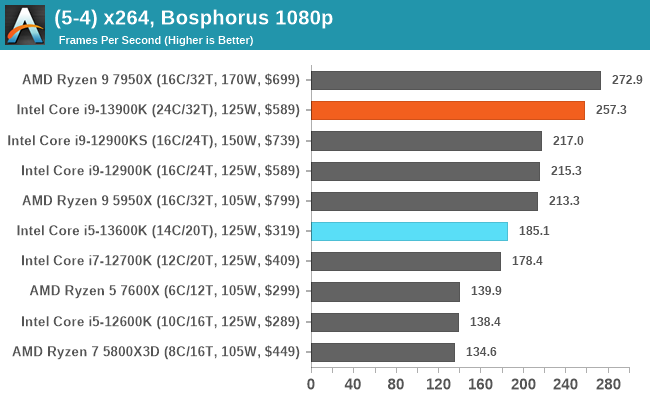
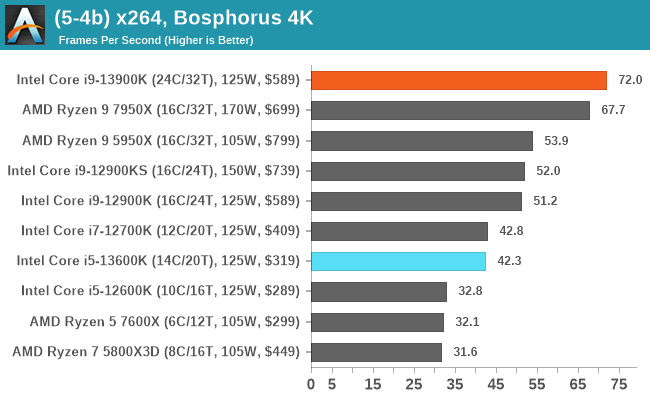
In our encoding tests, interestingly the Core i9-13900K looks to have the advantage in compressing files with 7-Zip. It’s a little different for AMD as the Ryzen 9 7950X decompresses the data better, with the overall combined advantage going to AMD in this particular test. In our updated x264 benchmark, Intel takes the lead in 4K encoding, while AMD has the lead in 1080p encoding; both are equally viable options, however.










169 Comments
View All Comments
nandnandnand - Thursday, October 20, 2022 - link
The 7950X outperforms the 13900K from 65W to 185W by substantial amounts: https://www.youtube.com/watch?v=P40gp_DJk5E (19:00, Cinebench R23 multi)It also seems to use less power at lower temps in gaming (23:00, Cyberpunk 2077)
That's probably not the end of the story, but Zen 4 is clearly doing better out of the box. Good news for Dragon Range buyers in 2023. Reply
Harry_Wild - Thursday, October 20, 2022 - link
Very happy that Raptor Lake is super competitive to AMD 7000 series! AMD has to lower it’s high end pricing now for both it’s chipset and retail pricing. Let the price wars begin after Thanksgivings. I expect the 7050X to go from $699 to $499. X670E boards will be the same price as the Intel equivalent models! 😁👍 ReplyDrazick - Thursday, October 20, 2022 - link
Could you build / compiler the SPEC tests with AVX512 flags for the Ryzen 7xxx? ReplyRyan Smith - Thursday, October 20, 2022 - link
It's on the to-do list. Though we're not expecting a significant change in performance. ReplyKangal - Thursday, October 20, 2022 - link
Any plans to test these in thermally or energy-constrained limits? Like with Air Cooling, or certain Watt limits?Or perhaps, how will Zen4 on laptops compare to Intel's RPL-equivalent on laptops...?
From here it looks similar to Zen3 vs Intel 12th, or Zen2 vs Intel 11th. That AMD is competitive in multithread and better efficiency, and Intel only remains competitive by expending alot of power, and it's mostly for the single-core.
Reply
Ryan Smith - Friday, October 21, 2022 - link
Yes. Performance testing at lower power levels is also on the to-do list. We had a chance to play with eco mode a bit for the Ryzen review, but didn't get to do something similar for Raptor Lake. ReplyKangal - Friday, October 21, 2022 - link
Oh nice, will be waiting for that next article to drop. Cheers!Reply
m53 - Friday, October 21, 2022 - link
@Ryan: How about testing idle power and realistic day-to-day use cases? I can only find this kind of review for 12th gen vs Zen3 and not 13th gen vs zen4. Would be really nice to have the numbers for 13th zen vs zen4.Here is a link to the review for 12th gen vs zen3: https://youtu.be/4F2z3F64o94 Reply
Drazick - Friday, October 21, 2022 - link
@Ryan, I am not sure about it.I think enabling AVX512 on Ryzen will have a great effect on the FP tests of SPEC. Reply
Oxford Guy - Friday, October 28, 2022 - link
There wasn’t a delay when one of the rendering apps got AVX-512 support several years ago. Reply